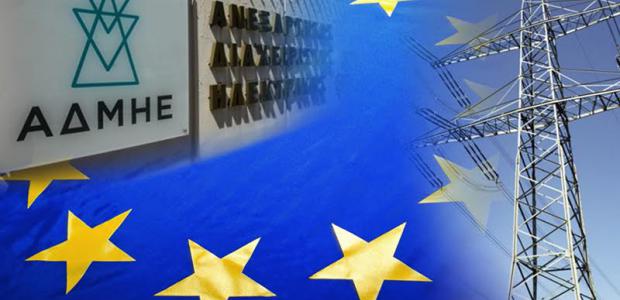The future course of power grid operator IPTO, main power utility PPC’s subsidiary firm headed for a split from its parent company, remains undetermined three months after the Greek government had provided the country’s lenders with details of a breakaway plan as it remains unclear whether the model proposed will prove sustainable, a European Commission has told energypress.
“It remains to be seen to what extent the Greek plan that had been given the OK by the country’s creditor representatives in December is sustainable,” the European Commission official remarked. “It is still being reviewed, with the involvement of independent consultants,” the official added.
Should the Greek proposal for IPTO be deemed sustainable, the government will be informed as part of the bailout program’s wider assessment. If the plan is rejected, then the possibility of needing to sell IPTO’s 100 percent will return to the negotiating table.
The current Greek proposal for IPTO entails PPC selling a majority 51 percent to the Greek state, 20 percent to a strategic investor, and listing 29 percent on the Athens stock exchange.
Greece’s energy ministry officials, in comments to energypress, remained certain that the Greek plan proposed to the country’s creditors will be given the green light, assuming that the government’s wider bailout negotiations with the lenders roll smoothly.
If the Greek plan is eventually approved by the European Commission, then the transfer of IPTO’s 51 percent transfer to the Greek state may be completed by September, authorities believe.
PPC has already hired two consulting firms, HSBC and Citi, as well as a major law firm to prepare for the IPTO developments. The power utility and its associates intend to prepare a full plan for IPTO’s split, including an evaluation of the subsidiary firm and the price PPC will demand as compensation for the operator’s breakaway.
The Greek state is expected to officially hire Lazard, SOL, and Norton Rose as its consultants. The announcement of an international tender, a time consuming process, is required before the state’s association with these firms is branded official. For the time being, their collaboration is being carried out unofficially.
Asked about other crucial Greek energy matters, such as the NOME auctions – to provide third parties with access to PPC’s low-cost lignite and hydropower sources as part of the plan to help break the utility’s virtual monopoly – the European Commission official contacted by energypress noted that EU and Greek officials are discussing the “possible implementation of NOME auctions.” This response adds weight to predictions made by various authorities of a possible return of a part-privatization course of action for PPC, locally dubbed “Little PPC”, to the negotiating table.





